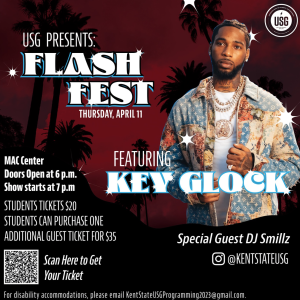OPINION: Limiting alcohol consumption for peace of mind
September 4, 2018
We all know the physical symptoms of a hangover. A screaming headache, nausea, dizziness and even muscle aches all accompany the morning after a night out. There is, however, another side to a hangover that we don’t take into account as often.
I remember waking up one morning with no physical hangover symptoms, but I couldn’t shake this depressive, cloudy mood the entire day. My mind felt slow and tired, like I didn’t have the ability to think clearly or hold my focus on anything. I thought, maybe this was a part of a hangover they don’t tell you about.
This happened about two weeks before finals began, and I decided I would quit drinking for the remainder of the semester. After a week and a half, I felt more focused, I felt more aware, I could easily remember what I’d studied, and I was able to remain in a good mood for long periods of time.
I felt like I was in better control during finals week, and my grades reflected this positive feeling. I knew that cutting out alcohol was the reason for this, but I didn’t know why. Now, I do.
This mental and emotional hangover happens because alcohol does a number on sleep quality. Specifically, it prevents you from entering rapid-eye-movement (REM) sleep, the stage in your sleep cycle where you dream.
When you’re in REM sleep, your brain is firing on all cylinders, consolidating memories and ironing out emotional experiences.
Matthew Walker, a sleep scientist and professor at the University of California, Berkeley, explains in a video for Business Insider that “it’s during dream sleep where we start to actually take the sting out of difficult, even traumatic, emotional experiences that we’ve been having.”
When you consume too much alcohol, you lose this therapy, resulting in a range of negative experiences from bad moods to serious mental illness. Repeatedly cutting REM sleep short by drinking can greatly harm your ability to handle your emotions.
Over time, this hurts our ability to deal with future emotional traumas (which some people do by drinking), creating a negative feedback loop. Dr. Walker also points out that drinking can cause you to forget what you’ve learned, even if you drink a few days after learning. If you’re trying to study for an exam, drinking negates much of that work you just put in. If you really want to remember what you study, getting sufficient sleep and staying away from alcohol will aid your memory retention tremendously. It’s worked for me.
Additionally, depriving yourself of sleep (often by drinking) will increase your cravings for high calorie foods and reduce your ability to make decisions about what you put into your body. Your inability to make sound decisions influences your propensity to drink, creating another negative feedback loop.
If you do decide to have a drink at the end of the week (after a big test you just aced), you’re going to like it more. When you remove yourself from the habit of drinking, the drinks you do have will be more flavorful and satisfying.
Scott Rainey is a columnist. Contact him at [email protected].

























